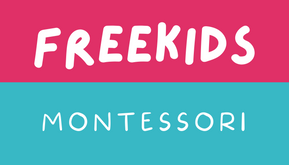
The development of the brain in the first 3 years: the Montessori approach in light of neuroscience
In the contemporary educational landscape, Maria Montessori's pioneering vision on the early years of children's lives is receiving renewed interest thanks to recent discoveries in neuroscience. Although formulated over a century ago, her insight into the crucial importance of the early years is finding surprising confirmations in today's brain studies.
Doctor and educator Maria Montessori argued that in the early years, the nerve pathways and basic associative structures of the brain are formed, serving as the foundation for how every experience will be processed, recorded, and remembered throughout life. Current neuroscience reinforces this view, indicating that as much as between 80 and 85% of brain development occurs in the first three years of life.*
*Source: World Health Organization
A key concept of Montessori philosophy is that of "unconscious mental absorption" in the first three years of life, during which the child effortlessly absorbs everything around them. This period is crucial as the child learns how the social world operates, thereby shaping their brain.
But how can we apply these insights in the modern context? Here are some ways in which parents and educators can support children's brain development in the early years of life:
✅ Suitable environment
Maria Montessori emphasized the importance of creating a suitable environment for the child's development. This included an area for resting, changing, feeding, and movement. Neuroscience confirms that a stimulating environment is essential for promoting the development of the nervous system.
✅ Sensitive care and communication
Research in neuroscience has shown that the relationship between adults and children is fundamental for brain development. Sensitive and loving communication, combined with responding to the child's needs, helps establish healthy brain systems and fosters optimism and trust in the world.
✅ Play as work
Montessori believed that play was the child's "work." Neuroscience agrees, emphasizing that while the child plays, they receive sensory information that establishes important neural connections, thus providing a critical foundation for future development.
✅ Exposure to nature
Montessori promoted the importance of contact with nature for the development of the child.Recent studies show that exposure to nature increases mental acuity and promotes cognitive development.
✅ Quality time without screens
The Montessori philosophy suggests that children learn best through real sensory experiences rather than through screens. Research in neuroscience confirms that excessive exposure to digital devices can negatively affect children's brain development.
Conclusions
In conclusion, the Montessori approach to child development in the first three years of life remains incredibly relevant and supported by contemporary research in neuroscience. Creating a stimulating environment, providing sensitive care, and promoting play and exploration are just some of the strategies that parents and educators can adopt to support the child's brain development during this critical period of life.
We cannot forget the essential role of educational toys in this process. By choosing Montessori toys, you can significantly contribute to your child's well-being and development, providing them with play experiences that will promote their growth in a harmonious and natural way!

